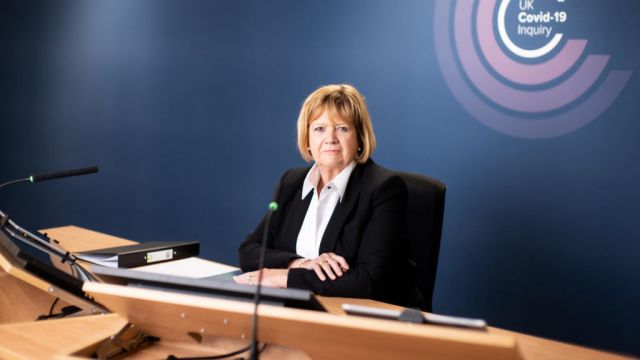The British government has asked the UK Covid-19 inquiry to return material that is not relevant to its line of investigation, it is understood.
The PA news agency has learned the UK Cabinet Office asked inquiry chairwoman Baroness Heather Hallett via a Section 21(4) of the Inquiries Act 2005 to return everything that is not relevant to her work.
The inquiry is believed to now be in possession of unredacted WhatsApp messages between former British prime minister Boris Johnson and 40 colleagues, including former No 10 adviser Dominic Cummings, Cabinet Secretary Simon Case and former chancellor and current British prime minister Rishi Sunak.
A spokesperson for the inquiry would not comment on the specifics, first reported by openDemocracy, but said: “The chair is considering the Cabinet Office’s section 21(4) application and the unredacted documents provided following the court’s judgment in the judicial review proceedings, and will provide her ruling in due course.”
Section 21(4) of the Inquiries Act allows a person to refuse to comply with a formal notice requesting information for two reasons: if they don’t have the information being requested, and if it would be unreasonable for them to provide the information due to significant difficulty, time, or expense involved.
The Cabinet Office already used the legal mechanism to seek an exemption from providing information that they considered irrelevant to the inquiry’s work, but it was dismissed by Baroness Hallett.
In response, the British government launched a legal challenge, but it was struck down by the UK High Court in July, which confirmed the documents should be provided.
However, there was a delay in submitting messages sent by Mr Johnson before May 2021 due to the mobile phone containing those messages being turned off and securely locked following a security breach.
His spokesperson confirmed technical experts managed to recover them and that the messages would be handed over at the end of July.







